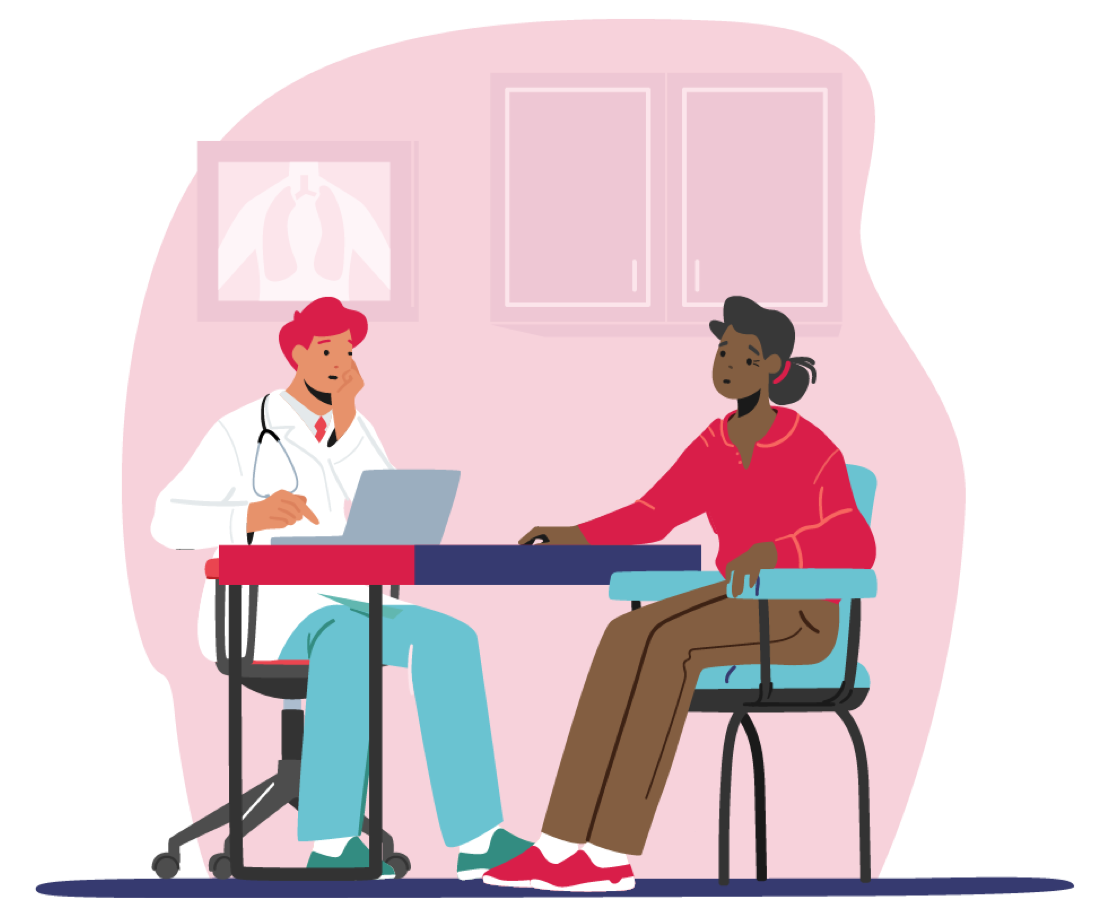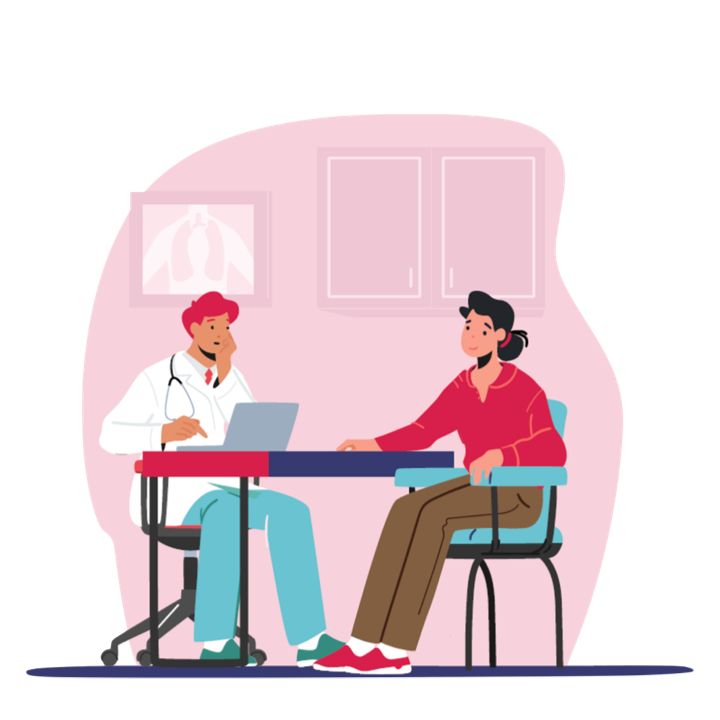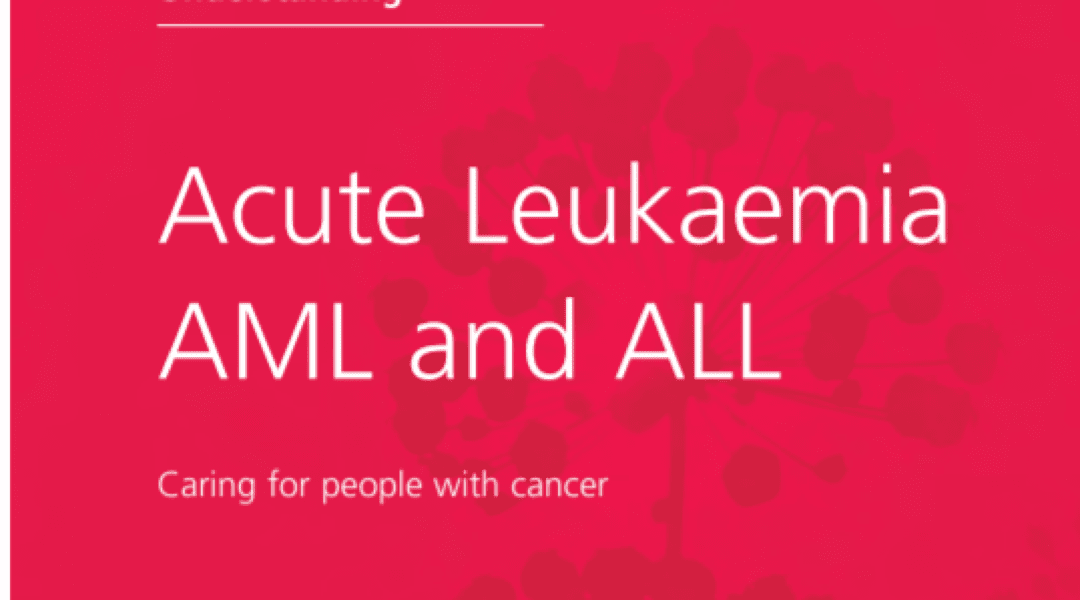Coming to terms with an AML diagnosis
An Acute Myeloid Leukaemia cancer diagnosis can be an incredibly challenging time, as it often happens very quickly. This can leave people feeling anxious and isolated. So what can be done to cope with this sudden change?
Learn more about the tests used to detect AML
Blood test
What is a blood test? How is it taken? What can I do to prepare? Find the answers to these questions and more.
Bone marrow test
Find information on bone marrow tests, how to prepare and more.
It is essential to keep in mind that you are not alone


Whether you or a loved one has Acute Myeloid Leukaemia, remember that others are going through this too. There are excellent support groups and information out there. You can access these to hear about other people’s experiences and share what you are going through.
Which best describes you?
I’ve been diagnosed with a blood cancer called Acute Myeloid Leukaemia
My loved one has been diagnosed with Acute Myeloid Leukaemia

I’ve been diagnosed with a blood cancer called Acute Myeloid Leukaemia
It is common to feel a wide range of emotions after a cancer diagnosis. It depends on how you naturally respond to stress - some people like to take a practical approach, whilst others find that expressing a range of emotions help them cope. It may be that you don't know how to feel and that's OK too. Whats important to remember is that you are not alone.
Some people find it helpful to talk with family and friends about their emotions towards their diagnosis and treatment. However, everyone is different about sharing their diagnosis with people outside of their immediate family. Do what is most comforting and supportive for you.
If you are struggling with expressing your emotions, you may find it helpful to convey your feelings in other ways – through writing, drawing or physical affection.
If your emotions are overwhelming you, let your doctors or nurses know. They will have helped other people through the same situation in the past and will be able to help you process your emotions.
There will be lots of information provided to you. Your doctors and nurses will be happy to go over it as many times as needed, as there is lots to understand.
Don't hesitate to reach out to them if you have any questions or concerns.
My loved one has been diagnosed with Acute Myeloid Leukaemia
Having a loved one diagnosed with AML affects everyone differently and its normal to experience a range of emotions. Remember that AML is a fast-acting cancer and there is nothing you could have done to detect it sooner in your loved one. Don’t worry if you do not know the exact words to say; just being present with friends or family members is helpful.
Think of practical ways you can help your loved one and offer to do specific tasks – such as bringing over a meal, doing a load of laundry or walking the dog. As you think of questions that you have for your loved one’s doctors or nurses, write them down. Your loved one may well be feeling overwhelmed, and any questions you think of will be helpful for them too. Don't hesitate to reach out to your loved ones doctors or nurses if you have any questions or concerns.
Your loved one may be in hospital for some period of time – remember to check in with doctors to understand the timeframes and why this is. Remember that to look after your friend or family member, you must look after yourself too. Try to stick to a routine as much as possible, eat regular meals and aim to get a full night’s sleep. Practising mindfulness and staying active will help you achieve a balanced schedule and improve sleep quality.
Support material
Sometimes listening to others who have gone through a similar AML experience may help
Alisdair’s story
Alisdair was diagnosed with AML in January 2016. Hear him talk about his diagnosis and how he coped.

Irish Cancer Society support
The Irish Cancer Society is able to provide guidance and support for those living with AML or recently diagnosed in Ireland.

Blood Cancer UK support
For those living in the UK, Blood Cancer UK has a wealth of information available for those living with AML.
The diagnosis process
Karen, an AML nurse, talks about a diagnosis of AML and the steps involved
Samantha’s story
Samantha was diagnosed with AML in 2016. Listen to Sam talk about her experiences of AML
Relapse
The goal when treating AML is to achieve ‘remission’.1,2 Remission occurs when the body no longer produces abnormal white cells or the number of abnormal white cells is so low that it is not a concern.1
Jane was diagnosed with AML in 2014 and relapsed three months after reaching remission. Hear her story and the advice she has for others.
Unfortunately, there is a possibility that following treatment, the body may go back to producing high numbers of abnormal white blood cells. When this happens, it is called a ‘relapse’.3
Relapse is diagnosed by thorough testing, just like an initial diagnosis.4 Experiencing a relapse is disappointing, and may have happened for a range of reasons. For example the AML may be resistant to initial treatment or the treatment may not have destroyed all the AML cells.5 Speak to your doctor to understand your relapse and they will recommend how to best approach treatment.5
Alisdair was diagnosed with a relapse following his first round of treatment. Watch this video to learn how he coped with his relapse.
If there are any words or terms you don’t understand, our Terminology Explained document can help guide you.
Learn more about the tests used to detect AML
Blood test
What is a blood test? How is it taken? What can I do to prepare? Find the answers to these questions and more.
Bone marrow test
Find information on bone marrow tests, how to prepare and more.
References
1. MacMillan Cancer Support. Acute myeloid leukaemia (AML). https://www.macmillan.org.uk/cancer-information-and-support/leukaemia/acutemyeloid-leukaemia-aml [Last accessed: April 2022]
2. MacMillan Cancer Support. Acute Myeloid Leukaemia (Leukemia) Relapse. https://www.macmillan.org.uk/cancer-information-and-support/leukaemia/acutemyeloid-leukaemia-aml-relapse [Last accessed: April 2022].
3. Leukemia & Lymphoma Society®. Acute Myeloid Leukemia in Adults. https://www.lls.org/leukemia/acute-myeloid-leukemia [Last accessed April 2022]
4. Thol F, Gancer A. Treatment of Relapsed Acute Myeloid Leukemia. Current Treatment Options in Oncology. 2020; 21:66
5. Leukaemia Care. Relapse in Acute Myeloid Leukaemia (AML). https://media.leukaemiacare.org.uk/wp-content/uploads/Relapse-in-Acute-Myeloid-Leukaemia-AML-Web-Version.pdf [Last accessed April 2022]
HAE_2022_0004_IE | April 2022

